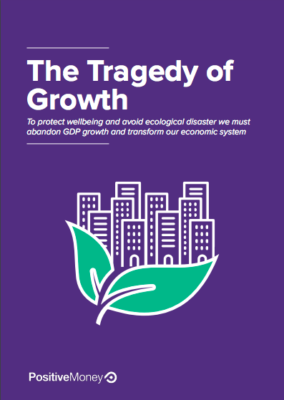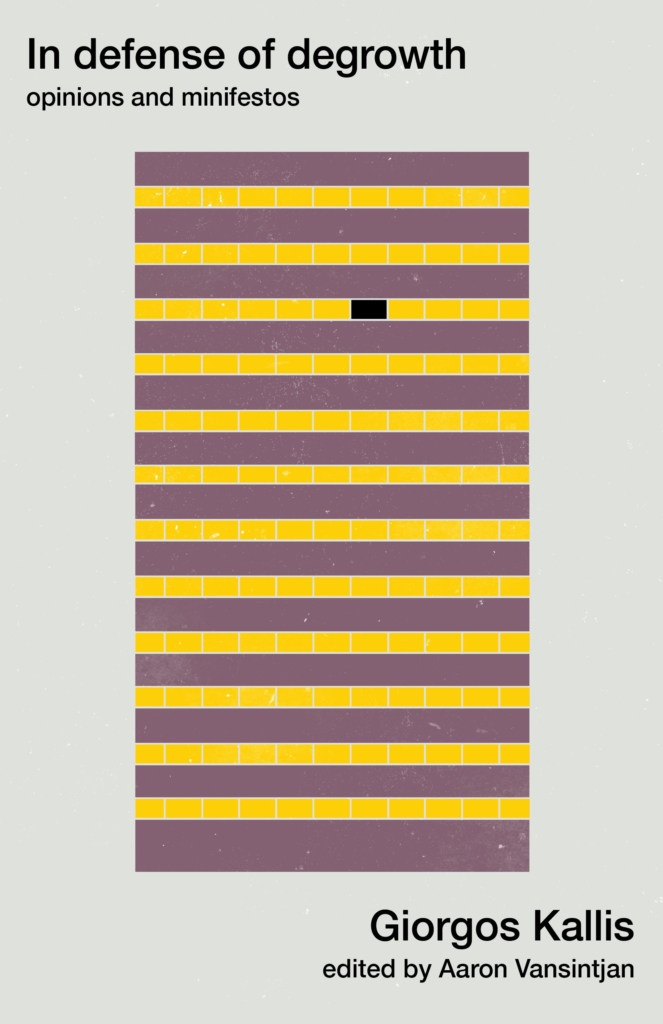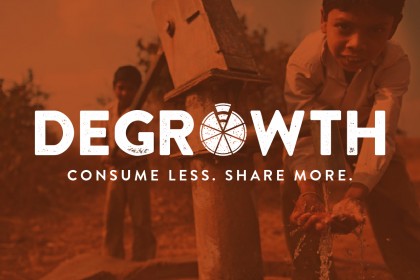New Roots


Much has been made of the ideological roots of the cabal that published Britannia Unchained: Global Lessons for Growth and Prosperity: Kwasi Kwarteng, Priti Patel, Dominic Raab, Chris Skidmore and Elizabeth Truss, and there is the wider Free Enterprise Group that also advocates for a more “unfettered capitalism” with admiring glances at other countries where more “red-blooded” free markets operate. Certainly in the immediate responses to the corona crisis Rishi Sunak has been forced to make the sort of state interventions that would have made Jeremy Corbyn blush. However, look a bit closer and the picture looks very different.
As George Kerevan points out:
“Even at the upper bound of £100 billion to support furloughed workers, that sum is a tiny fraction of the £1.2 trillion that both Labour and Tory governments forked out to save the big banks, following the 2008 financial meltdown. Even if you add in the £350 billion the Chancellor is spending on directly supporting companies during the lockdown, the banks got three times as much in total to protect their arses.”
Kerevan concludes: “The rise in public investment is designed to bail out global capitalism, not to benefit ordinary folk. Austerity in the shape of cuts to wages and welfare spending is still very much on the cards – and COVID-19 will be the convenient justification”.
But if the stream of people packed into trains and tubes and buses across England was a chilling sight of the new precariat, mainstream economic thinking is not just one that can’t cope with the coming depression, it’s one that was already completely dysfunctional. Worse still the radical right that is mismanaging this crisis have terrifying ideas about the world.
A few years ago Dominic Raab wrote a paper for the Centre for Policy Studies urging that “the definition of fair dismissal should be widened … to encompass inadequate performance … [This] would help employers get the best from their staff.” The paper also argued for exempting businesses from paying the minimum wage for under-21s, then the princely sum of between £3.68 and £4.98. Interviewed about the book Britannia Unleashed Raab said: “The talented and hard-working have nothing to fear.”
The Conservatives who penned Britannia Unleashed attacked what they saw as the UK’s “bloated state, high taxes and excessive regulation” and, most memorably, derided British workers as “among the worst idlers in the world” (“We work among the lowest hours, we retire early and our productivity is poor. Whereas Indian children aspire to be doctors or businessmen, the British are more interested in football and pop music.”)
The worldview of shirkers and idlers has been transferred, from the rabid right’s mauling of ordinary people and creation of endless imagined grievances for its Brexit fever-dream, neatly to the corona virus and the release of the lockdown being presented as a form of liberation. The Daily Mail’s union-bashing front page urging teachers to be “heroes” like nurses and other frontline staff is perhaps the high-point of this sickness.
But the wider problem is not just their punitive and nasty view of humanity. That can and will be opposed and fought against. The wider problem is that they do not know what the economy is for other than to accumulate wealth and produce endless stuff.
New Roots
But as the western world staggers in rudderless incomprehension new economic and political stories are rapidly emerging which make sense of the world.
As the economic anthropolgist Jason Hickel argues: “If your economy requires people to consume things they don’t need or even want, and to do more of it each year than the year before, just in order to keep the whole edifice from collapsing, then you need a different economy.”
The new big idea is “degrowth” and it’s taking fire.
Put simply degrowth is “a planned yet adaptive, sustainable, and equitable downscaling of the economy, leading to a future where we can live better with less.”
There were 3,200 scientific articles published on degrowth in 2019 (up from less than 100 in 2000, and 600 in 2010), with contributions across economics and philosophy, anthropology and ecology.


Read the Tragedy of Growth report here.
A new poll out last week finds that 8 out of 10 Britons want the government to prioritise health and wellbeing over economic growth. 89% of people in Scotland though that health and wellbeing should be the priority in these times.
“Positive Money, the campaigning group that commissioned the research, said the poll showed that the government should publish statistics on social indicators, health, the environment and quality of life to give a truer picture of the UK’s status and help policymakers better target what the public wants.”
The explosion of degrowth theory is seen everywhere.
More than 1,100 academics from around the world have signed this open letter calling for a shift to postgrowth and degrowth economics in rebuilding after covid19. This letter is the result of a collaborative process within the degrowth international network. It has been signed by more than 1,100 experts and over 70 organizations from more than 60 countries.
In Degrowth: New Roots for the Economy they argue:


For decades, the dominant strategies against these ills were to leave economic distribution largely to market forces and to lessen ecological degradation through decoupling and green growth. This has not worked. We now have an opportunity to build on the experiences of the Corona crisis: from new forms of cooperation and solidarity that are flourishing, to the widespread appreciation of basic societal services like health and care work, food provisioning and waste removal. The pandemic has also led to government actions unprecedented in modern peacetime, demonstrating what is possible when there is a will to act: the unquestioned reshuffling of budgets, mobilization and redistribution of money, rapid expansion of social security systems and housing for the homeless.
At the same time, we need to be aware of the problematic authoritarian tendencies on the rise like mass surveillance and invasive technologies, border closures, restrictions on the right of assembly, and the exploitation of the crisis by disaster capitalism. We must firmly resist such dynamics, but not stop there. To start a transition towards a radically different kind of society, rather than desperately trying to get the destructive growth machine running again, we suggest to build on past lessons and the abundance of social and solidarity initiatives that have sprouted around the world these past months. Unlike after the 2008 financial crisis, we should save people and the planet rather than bail out the corporations, and emerge from this crisis with measures of sufficiency instead of austerity.”


1) Put life at the center of our economic systems
2) Radically reevaluate how much and what work is necessary for a good life for all
3) Organize society around the provision of essential goods and services
4) Democratize society
5) Base political and economic systems on the principle of solidarity
The analysis recognises that we are at a crossroads that is both global and intergenerational, operating both within the “developed” world and across the world: “Redistribution and justice – transnational, intersectional and intergenerational – must be the basis for reconciliation between current and future generations, social groups within countries as well as between countries of the Global South and Global North.”
These are some profound insights in terrible times. No doubt they will be resisted and ridiculed because they very idea of growth, endless growth and limitless choice, is so hard-wired into your brain you take it to be an unassailable truth. But the virus experience and the coming collapse is exposing the redundancy of our economic systems and the fantasies they are based on. The experience is forcing us to re-evaluate our base values and core assumptions about the world. The coming changes will be resisted by those who are too invested in the collapsing system, and must be fought for by those of us who survive and want to continue.

With no available reckoning of the damage done by the virus thus far to the fundamental structures of capitalism, it’s difficult to see how it is possible to meaningfully strategise the future. That, of course, takes nothing away from Degrowth arguments. Unfortunately, at the moment the authors of that wretched, little horror-story, Britannia Unleashed, have access to the all important levers-of-power and the Degrowthers don’t. That said: it is essential and still possible to entertain optimism for the future. The open defiance of Government directives by the devolved governments, local authorities and teachers has the potential to grow and in doing so change everything; particularly so to the advantage of the Degrowthers, who actually posses a strategy for the future. That may appear outrageously optimistic at the moment, but given that we can’t return to the past and the future is unknowable: who can say with any certainty what governments might be forced to do (including the adoption of Degrowth policies) if they wish to remain relevant in the eyes of the governed?
They may not need to do anything to remain relevant. They have postponed elections for the indefinite duration of the crisis and even after that they need only mutter “Brexit” and “Wicked EU” and for Johnson to say something sexist and they will sweep to power in England… again.
Plus they still have the armed forces and the police to command.
Tried to get your excellent Five Principles into a tweet, but couldn’t do it; happily, was able to extract one of your”pregnant paragraphs” and sent it off to a few of the usual suspects.
I do hope you have received my donation–I only wish it were more. Bella is a gem, truly.
Me thinks the straw that will break the camels back ,”is just around the corner” don’t forget who brought Water Cannon into this country.
What are:
3. ‘Essential goods and services’
5. ‘Principles of solidarity’
Sounds a bit like ‘we’re all too stupid to know whats in our ‘best interests’ lets allow an ‘enlightened’ elite to tell us.
Apart from that an excellent thought provoking article.
” essential goods and services ” = tumbrils and guillotine !
Cigarettes and single malt (isle of Islay)
Herein lies the problem…everybodies ‘essential good and services’ are different
Who decides?
@paul. cigarettes bad. Isle of islay malt good.
Principle 4 suggests we get to decide those things, not an “enlightened elite”.
All depends what is meant by point 4, its far too vague, after all Lenin thought he was ‘democratising society’.
All 5 points need some ‘meat on the bones’
I’m quite open to been ruled by an ‘enlightened elite’ so long as I agree with them!
Click through the links for more detail Paul. No ‘enlightened elite’ required in degrowth (?)
We’ll be getting de-growth whether we want it or not Mike.
Lets see how we cope.
Keep safe and all the best
Rejecting consumerism, and embracing “quality” time is a shift in thinking and lifestyle, which (i feel) is well underway.
Caring and sharing will be the new normal.
Those decades of greed (1980’s, 1990’s, etc ) will be an unpleasant memory.
The young people are awakening, and this time it’ll be unstoppable.
(Good stuff happened in the 1960’s, but somehow got lost subsequently).
that’s my tuppence worth this sunday eve, from canada.
Degrowth? Being old and cynical, I refer you … See Hebrew 13, v8.
Tell us more W.B?
While the intentions are good, there is blatant liberalism in parts, suggesting capitalism is just an economic policy, i.e. use of the term ‘disaster capitalism’ as a distinct term (like capitalism in all instances isn’t already motivated to prop up crises and milk them). Radical intentions need radical positions. Capitalism isn’t just a policy, mindset or set of goals, it is a superstructure, a system of impermeable social relations where almost every action from any section of it, I.e. from the working classes, to governments, and especially within the capitalist class itself, almost always serve to reinforce its exploitation and social hegemony. It is highly adaptable to new circumstances and threats, creating new ideologies to camouflage the fact that at its core it is largely unchanged from how it always was. Wars for oil may soon become wars for rare earth elements for batteries and windmills, and with token women and queer leaders the now rainbow coloured boot can continue to stomp on the face of humanity with a disempowered or pacified working class incapable of creating social institutions that protect it’s own interests.
I find it hard to believe degrowth could ever be possible, if only because capitalism requires a free and competitive market that is always reaching for more so that its various factions of capitalists can survive in the business environment. Anything towards national planned economies and state power and the USSR could be reborn… bleak.
Even with hopeful and inspiring pieces like these, I can’t help but get a feeling like even our most forward thinkers are confining themselves within the logic of an outdated system, through its range of flavoured but fundamentally identical lenses of the world. The most hopeful way it appears to me at the moment, for true democracy and a future worth looking forward to, is for people to begin right now in building networks of care outside of the power of the capitalist state, raising class consciousness and disciplined and unrelenting working class power. We see this on local scales right now which is fantastic, but what we really need is an international, participatory and revolutionary working class political force that transcends borders and whose scale is vital for overcoming this system of global hell. Even Scottish indy looks like a false hope for me now when the issues we face as working class Scots are shared everywhere in the world beyond.
Maybe as an impressionable 21yo I’m just too far down the rabbithole of revolutionary Marxism. But as any scientific socialist should, I do retain a slight belief that change within our current political systems is possible, but extremely unlikely.
Try Free Fair and Alive – read online – the 21st century understanding of “commoning” – where existing / living without an elite acknowledging the realities of capitalism. It is a long read, not for wimps, not to be agreed with submissively, but an injection of thoughts to think with, See what you make of your life and those around you.
Thanks Elspeth
Thanks for the suggestion Elspeth, it looks interesting and very up my street, I’ll add it to my reading list.
I’m a bit skeptical though. The brief suggests the book wishes to ‘escape all -isms’ but no unjust hierarchy; voluntary, decentralised and local democracy; and small-scale, community owned production are fundamentals of anarchism as proposed by Kropotkin and similar classical and contemporary theorists (specifically anarcho-communism. Some people wish for anarcho-capitalism which is bizarre and contradictory). In fact in an online discussion I see people suggesting that the writers may purposefully be avoiding labels to deter any kneejerk reaction to the ideas proposed. Sooner or later though, ideology helps tie up similar ideas in a coherent way and is not inherently bad. The world is awash with ideology already, but you probably know that. The political compass is useful for explaining how rich the landscape of political theory is and just how many labels there are, aside from the false dichotomy of ‘Stalinism vs capitalism’ that is fed to us.
I hope these rants aren’t too out of place or out of touch.
Now in my 8th decade, I find your thinking encouraging, and hope that it is shared by many of your contemporaries.
Thanks Pete
Whats ‘true democracy’?
On another matter doubt you’d get away with calling yourself McHitler. You are aware that Mao caused the unnatural deaths of circa 60-70 million people?
Pete, thanks. It’s a shame that it’s so surprising for people of your generation to be sympathetic to different views of the world than that fed to us. The fact that ‘the older you get, the more conservative you get’ accentuates my point that popular culture and the social institutions that provide it largely seek to reinforce themselves and justify the status quo as a natural fact. Also, youd be surprised at the number of young people discussing fresh perspectives in our familiar online spaces and trying to imagine a future better than the one we’re currently inheriting.
Paul, on the username, you’re right. I made reference to my criticism of the USSR and it applies to the PRC too. I don’t support Mao or Maoism as far as I understand it, I’ll need to use a different username in future comments (HyacinthHouse probably). Chairman McMao is the sort of ironic and to-be-taken-at-face-value thing that works well in other mediums than this. On your request for a clarification on ‘true democracy’ I’ll provide this: the working class majority only has the freedom to choose which capitalist entity to sell its labour to in exchange for the necessities of survival, and the freedom to choose particular representatives of the oppressor class to enact laws protecting property over people, largely immune to scrutiny. More liquid forms of democracy are possible and desirable, particularly necessary in our economic spaces, where we can only really get an economy that produces for need rather than profit by seeking for collective ownership rather than private ownership. The manufacturing of consent (see Noam Chomsky) that occurs through media and popular culture tries to convince us this is natural and that the only other alternative is by putting ‘communists’ in state power and revisit the horrors of the 20th century. As a final contribution for my amateur interpretation of the dictatorship of capital (which youd be better served by reading up on elsewhere from better sources) the USA is the nucleus of global capitalism and has engaged in funding and support for brutal right wing paramilitaries, imperialist war and anti-left wing propaganda.
Primitive communism describes the collective survival and ownership of resources we evolved with, as social animals. Capitalism describes a necessary but temporary historical stage before we use our accumulated, now great abundance of wealth and knowledge to fulfil human needs and fulfilment as a priority and live within ecological limits. Work should be a means rather than an end, and that’s only possible when us as the labourers and creators of wealth have ownership and a say in how it is used.
Whats a young person doing reading some old arthritic like Noam Chomsky?
If i was young (ish) he’d be the first up against the wall.
Incidentally when I was young the young people banging on about the ‘working classes’ we’re invariably posh ‘middle class’ students feeling guilty about their privileged upbringings.
Not sure whether this applies to you but I hate to tell you that you will soon be old and it will come sooner than you think! SORRY
That was funny, I have friends who share a distaste for old Noam boy, but it’s probably based on his solutions of performative protest falling short of his decent and far reaching analysis of power, rather than his arthritis. For somebody cognisant of age, I’ll return your words and remind you that you might end up with arthritis too!
I’d give a lot to be a posh student, probably because I’d find time for my politics and also my hobbies. Being an apprentice straight out of school and on 37 hours/week (but with decent money I couldn’t care for) I’m grounded in an authentic socialist beginning but should probably just stick to revolutions on the bicycle for now rather than revolution in society. We did a really good close reading on a poem about the temporality of youth in English… Norman Maccaig maybe.
Thanks for your comment Chairman McMao.
I’m sorry that as a 21 year old you think that: ‘any socialist should believe that change within our current political systems is possible, but extremely unlikely.”
I think that degrowth is explicitly anti-capitalist and its worth doing some reading on this.
Anything is possible, but whether we as a society fix the real problem we will be left without choice. The systems we use today have changed little since the 16th Century reformation. The political power structure needs to adapt again because the real problem has always been global. The power of the Catholic Church has prevented us from progressing in line what Old & New Testaments have foretold. Pope Francis knows the prophecies & Revelations but he is unlikely to realize the concept of marriage in relation to 3-phase power.
Our Global Elite may have had plans for New World Order but for a virus they may have succeeded. As a society we need to implement a 3-phase system of power.
By Jove, I think you’ve got it. “Degrowth” is incompatible with capitalism–which structurally *must* expand, as I know you well understand–but socialism need do no such thing. Think quality, think autonomy, think local empowerment–these are some of our keys. Greetings, comrade, from across the pond, in the U$A.
I’m currently trying to get to grips with the writings of Karl Marx. I’m on Chapter 1, Section 3 of Das Kapital at the moment. It’s a very tedious section, but I am trying to persevere with it.
As for Chomsky, the guy is such an important asset to the Left. I can understand that people would disagree with certain aspects of his thought, but he has been invaluable in offering a critique of State and Capitalist power. I hold him in very high regard. His work introduced me to Anarchism, which I’ve been interested in ever since.
Authority (for that just political and economic reform) is still going to have to come from somewhere: rationality, biology, ethics, science, whatever (call it a planetary-realism test for an ideology); and that will come into tension with democracy. That tension can be resolved, but you need to work on the demos part. People need to become trained, active citizens in order to become part of an effective collective decision-making process. What ‘life’ is that in 1) anyway? Is this just another humanism project?
People often misunderstand the nature of the ‘success-stories’ of the modern world. Communism is the great driver of global software, although you probably cannot safely use that word in heavily-indoctrinated circles. Something like “public by default” then:
The most successful developers share more than they take
“After interviewing several developers, a pattern started to become clear: great developers share a lot. This takes different forms for different people, but is very often a blog. But for many top developers, their sharing mindset came before their success, and was the direct cause of it, not the result of it.”
https://stackoverflow.blog/2020/05/14/the-most-successful-developers-share-more-than-they-take/
Remember, ideas are the means of production of more ideas; an ideas commons with a community and rules for sharing is one of the communisms that shape our modern world.
The transparency in open software development (and maybe open hardware is catching up, good for all those with an e-bike hankering on a budget) is relevant to democratisation. Indeed, many have suggested that developer-style collective problem-solving approaches can be effective in social policy. And we are back again with training our demos (many of whom sadly have spent much of their lives being trained as consumers). And for software to be (relatively) safe, it generally needs lots of eyes, lots of checking, lots of motivated and skilled people (like democracy).